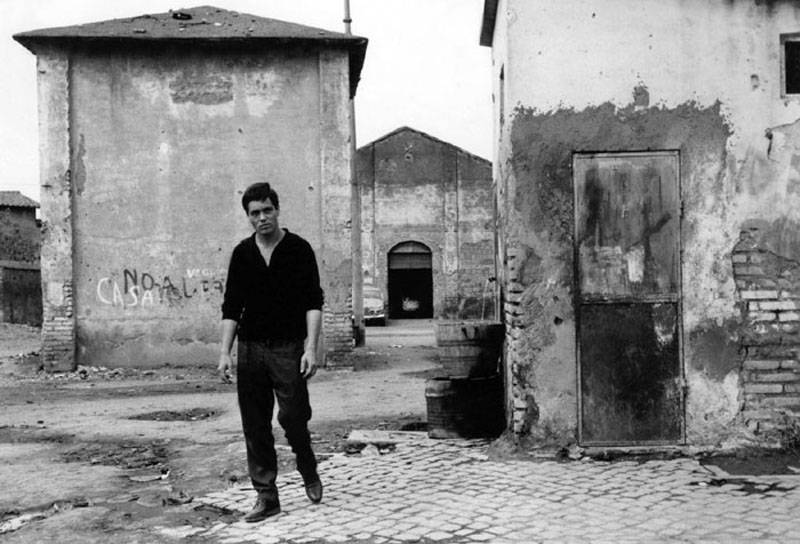Accattone Turns 50
This year’s Venice Film Festival, the 68th, features the Lido’s most impressive line-up in years. As every end of summer,Venice is a useful indicator of which films, especially European ones, may go on to become awards contenders... but that's a different story. This story is about an important cinematic anniversary, the anniversary of a famous film that opened for the first time ever on August 31, in 1961 at the Venice Film Festival itself. It literally shocked the critics who strongly criticized it and discouraged its release.
Fifty years ago, Pier Paolo Pasolini debuted at the directing chair with his first and most striking film: Accattone. Shot during the spring and the beginning of the summer of 1961, the film was not in competition, and had not been rated at the time of screening, so all scenes, especially the ones later considered obscene by the critics, shocked the viewers. Pasolini’s choice of topics was scandalous, as was his blurring of the lines between the sacred and the profane.
With a young Bertolucci as his assistant director, the director introduced something new. His film brought together cinema and an Italian social class that up to that moment had been totally unexplored, the underclass. The portrayal of the summer of a borgataro (street thug) Vittorio Cataldi (known as Accattone), starring the new comer Franco Citti, was made of swims in the Tevere, street fights, drinking binges and the search of a prostitute. This portrayal was not consistent with the neo-realist substrate it was inspired from. The choice of using non professional actors expressed Pasolini's choice that nobody could inhabit his characters better than the people who really lived in those streets featured in his stories, who lived the same situations, who were considered the low of the lowest of society. Although Pasolini tried to distance himself from neo-realism, the film is considered to be a kind of second neo-realism, with one critic believing it “may be the grimmest movie' he'd ever seen.
Accattone's story is representative of life in the city's outskirts, where people do not live but they fight to survive as days go by. When Accattone's protegee (aka prostitute), Maddalena, is arrested, he is basically jobless and so he tries to go back to his wife Ascenza, so she can support him, but she sends him away. He then meets a young ingenue, Stella, and falls in love. The meeting seems to have a positive effect on him, he tries to change and even look for a regular job. But he quits on his very first day because of a nightmare where he saw his own funeral in a devastated cemetery, and decides to prostitute Stella. She tries but unsuccessfully as she is too shy and inexperienced. Accattone must find something to support them both. He accepts to collaborate with a guy from the same hood, a thief named Balilla, in some robberies. As they are stealing a bunch of salamis, they are noticed by the Police and a chase ensues. Accattone tries to run away on a motorcycle but he gets hit by a truck and, as he lays dying, he declares an undeniable truth “Ah .. mo' sto bbene” (“Ah... now I feel good”)
The film ends with a religious message, Balilla crossing himself, on the notes of the Saint Matthew Passion by Johann Sebastian Bach. “We are creating a sort of contamination between ugliness, violence, and musical sublimity,” Pasolini himself explained. In Accattone the musical comment is mainly made of music by Bach, but there also are some popular songs.
The Venice Film Festival continues to be unfair to the film. No special screening or event has been organized. Bertolucci, who made his debut at the Festival as Pasolini's assistant director, will be there presenting something else... he will award Marco Bellocchio the Golden Lion for Lifetime Achievement.





































i-Italy
Facebook
Google+
This work may not be reproduced, in whole or in part, without prior written permission.
Questo lavoro non può essere riprodotto, in tutto o in parte, senza permesso scritto.